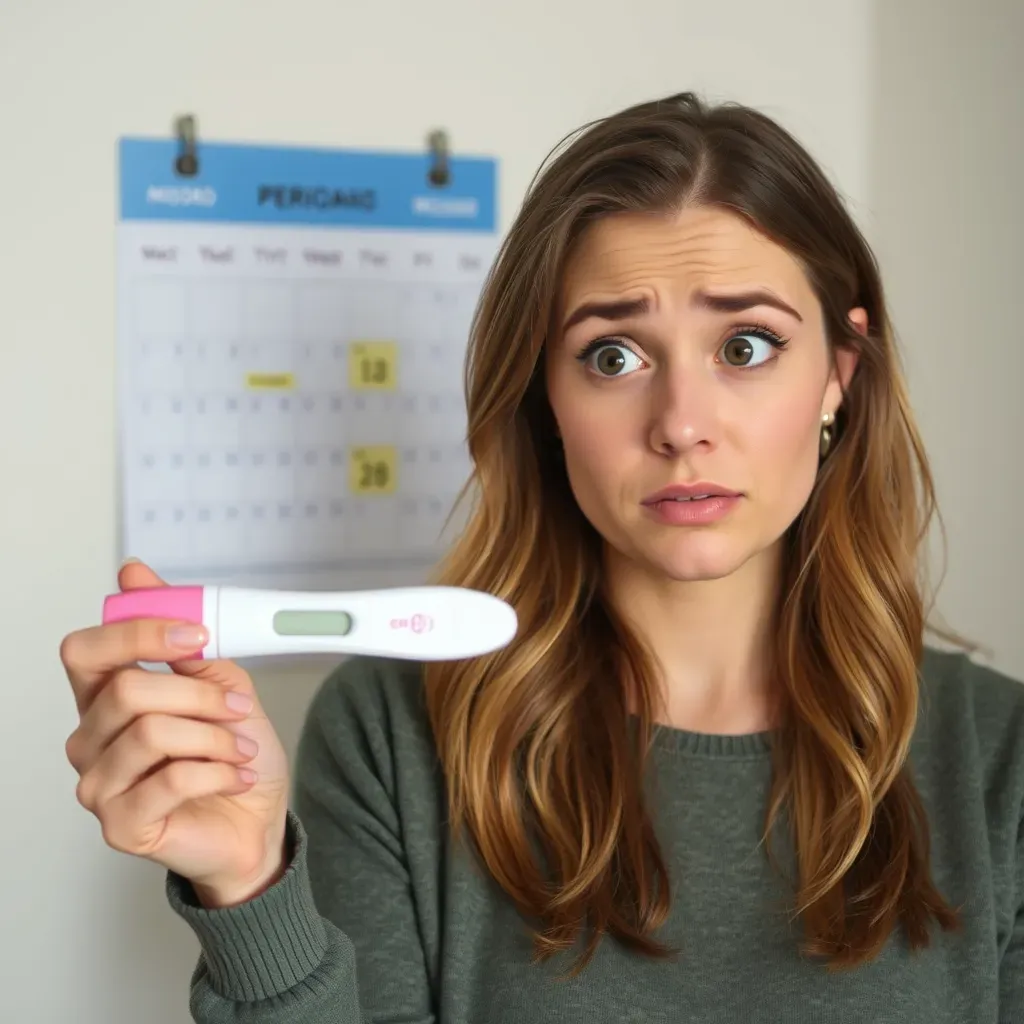Negative Pregnancy Test but No Period: Possible Causes and What to Do
It’s a scenario that can leave many women feeling perplexed: a negative pregnancy test accompanied by the absence of a period. You might be wondering, „Am I pregnant or not?“ This article delves into the potential reasons for this puzzling situation and offers guidance on the next steps to take.
Understanding the Basics
A negative pregnancy test generally indicates that the hormone hCG (human chorionic gonadotropin) is not present in significant amounts in your urine. However, there are several reasons why you might still experience a delay in your menstrual cycle.
Common Reasons for a Negative Test and Late Period
- Testing Too Early: If you take a test before your expected period, the hCG levels may simply be too low to detect. It’s often recommended to wait until at least the first day of your missed period for the most accurate result.
- Hormonal Imbalance: Fluctuations in hormones, possibly due to stress, illness, or conditions like polycystic ovary syndrome (PCOS), can lead to an irregular cycle, resulting in a delayed period.
- Incorrect Test Administration: Not following the instructions for the test properly can yield inaccurate results. Always read the guidelines carefully.
- Physical or Emotional Stress: High levels of stress, whether from work, personal life, or other factors, can significantly impact your menstrual cycle.
- Weight Changes: Significant weight loss or gain can also affect your hormone levels, which may lead to missed or delayed periods.
- Medications: Certain medications, including hormonal contraceptives or antidepressants, can influence your cycle.
- Medical Conditions: Conditions affecting the reproductive system or hormonal functioning can cause missed periods. If your cycle is unusually irregular, consult a healthcare professional.
When to Seek Medical Advice
If you’re experiencing symptoms such as severe abdominal pain or if your period is more than a week late with a negative test, it’s time to consult a healthcare provider. They can perform a blood test, which is more sensitive than urine tests and can provide clarity on your situation.
Physical Symptoms to Monitor
While awaiting your period, be aware of other symptoms that might indicate pregnancy, such as:
- Nausea: Often termed morning sickness, this can occur at any time of day.
- Breast Tenderness: Hormonal changes can make your breasts feel sore or swollen.
- Frequent Urination: Increased urination often occurs early in pregnancy.
- Fatigue: A sudden increase in tiredness can be an early sign of pregnancy.
- Changes in Taste or Smell: Heightened sensitivity to certain smells or tastes may occur.
What to Do Next
If your pregnancy test is negative and your period is delayed or absent, consider the following steps:
- Wait a few days and take another test, especially if your cycles are usually regular.
- Monitor any additional symptoms that may arise; this could provide clues to your condition.
- Consult a healthcare provider to discuss your symptoms and consider a blood test for further confirmation.
- Keep track of your menstrual cycle and any changes, which can provide valuable information to your doctor.
Understanding Your Cycle
Understanding your menstrual cycle can help in recognizing patterns and irregularities. A typical cycle lasts about 28 days but can vary from 21 to 35 days. Noticing changes in your cycle length or symptoms may offer insights into your reproductive health.
Conclusion
Experiencing a negative pregnancy test while your period is absent can be frustrating and confusing. It’s essential to remember that various factors can influence your menstrual cycle. Maintaining an open line of communication with your healthcare provider is crucial for addressing any concerns you may have.


Schreibe einen Kommentar